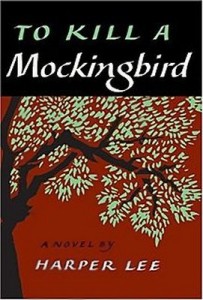To Kill A Mockingbird is under fire again, this time in Wisconsin.
Tumjama Kameeta, submitted a request to the Monona Grove School District in Wisconsin, asking administrators to remove To Kill a Mockingbird from the school curriculum, citing, among many infractions, the copious uses of racial slurs.
Kameeta wrote a statement to Madison365 explaining why a school district that is 83% white isn’t best served by Harper Lee’s classic, “The n-word is used so many times that it numbs the readers to its potency. Reading the book just perpetuates racists thoughts and attitudes in a school district that actively discriminates against children of color.”
To back up this comment, Kameeta cited statistics from the Department of Public Instruction,
When looking at student achievement the percentage of black students scoring below proficiency in English increased from 79% in 2015-2016 to 81.1 % in 2016-2017. While the percentage of white students scoring below proficiency in English decreased from 38.4% in 2015-2016 to 35.1% in 2016-2017. This data shows there is a real tangible racial disparity at the Monona Grove High School and this book with 48 racial slurs does nothing to help remove the racial disparities that are evident within the school district.
More than just the use of racial slurs in a class environment, Kameeta challenged that notion that a book lauded for racial sensitivity over fifty years ago, is still the best book to be taught today,
The novel reduces black people to passive, humble victims and ignores the reality of black agency in resistance. Black people are robbed of their role as subjects of history and are portrayed as mere spectators and bystanders in the struggle against their own exploitation and oppression.
Kameeta explains that Atticus Finch “reinforces the Hollywood stereotype of the white savior,” which is a cinematic trope in which a well-intentioned white person is the only one who can save a person or people of color.
The school district lays out policy for a parent interested in having their child excused from a specific controversial assignment, but it seems that might be a bit smaller than Kameeta had in mind. Before filing this request and submitting a statement to the media, he approached the faculty and administration. Kameeta wrote,
Communications with the English department, prior to the formal submission, revealed that the educational standards covered using this book could be taught using any book. Throughout e-mail communications with English department staff, a parent forum discussion with the high school principal, and a meeting with the district Director of Instruction, high school principal, English department coordinator, and our son’s English teacher, no one could provide us with an educationally sound reason for including this book and the use of the n-word in the curriculum.
The restriction of reading material is a slippery slope, but the point Kameeta makes in mentioning there are no writers of color taught in the class should be one the district takes seriously. It’s possible if the curriculum were designed to responsibly reflect the world at large, that there would be room for To Kill a Mockingbird in one parent’s ideals of education.
“It’s the only book that takes racism and describes it like that,” [Kameeta] said. “Kids are not getting an equal share of the information.”
So far the school’s response has not left Kameeta hopeful, “we fear that this will just get kicked around in committees and they’ll continue to use this book when the time comes later this semester.”
Help support CBLDF’s important First Amendment work in 2018 by visiting the Rewards Zone, making a donation, or becoming a member of CBLDF!
